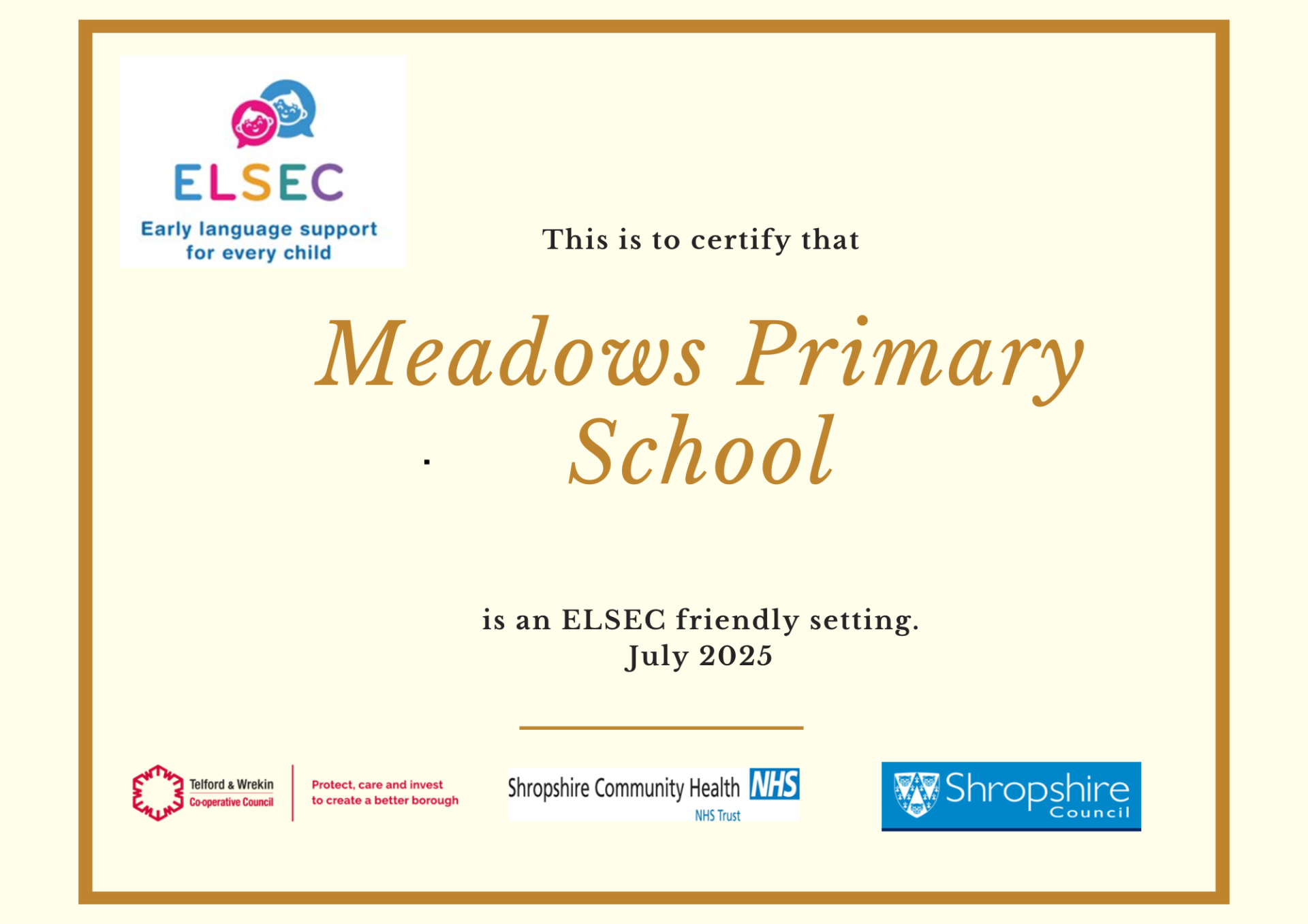Early Language Support

Meadows is a proud 'ELSEC school'. ELSEC stands for Early Language Support for Every Child.
This programme that aims to identify and support children with speech, language, and communication needs.
As a Department for Education pilot project, the ELSEC team worked with us to consider how targeted speech and language support at an early age can improve outcomes for children and young people. The project is a collaboration between children, their parents and professionals, led by an ELSEC team made up of both health and education colleagues.
Each year, all children entering our Reception cohort will be assessed and targeted with support as appropriate. Where intervention is required, parents and carers will be informed.
How you can support your child at home:
Parents and carers can actively support their child's language development through various strategies like talking, reading, and playing together.
Encouraging back-and-forth interactions, using simple language, and creating a language-rich environment are key. Seeking professional help early on if concerns arise is also crucial.
Specific strategies for supporting language development:
- Talk and interact: Engage in conversations with your child, narrate daily routines, and imitate sounds they make.
- Read together: Even if they don't understand everything, reading exposes them to new vocabulary and strengthens their understanding of language.
- Play is crucial: Engage in play, including imaginative play and games, as it facilitates language growth and social skill development.
- Use gestures and actions: Incorporate gestures and actions alongside speech to help your child understand what you're saying, especially in the early stages of language development.
- Create a language-rich environment: Surround your child with books, toys, and opportunities for interaction to encourage language exploration.
- Scaffold learning: Support their learning by expanding on what they say, using simple, repetitive language, and offering choices.
- Minimise background noise: Ensure a calm environment for communication and interaction.
- Get down to their level: Face-to-face interaction can make communication easier.
- Be patient and encouraging: Celebrate your child's attempts at language, even if they are not perfect.
- Seek support when needed: If you have concerns about your child's language development, don't hesitate to reach out to your child’s class teacher or one of our assistant SENCos.
Useful Links:
- Home - Speech and Language UK: Changing young lives
- Learning conversations and telling stories: 3 to 5 years - NHS
- Tiny Happy People - Key talking tips for any age


